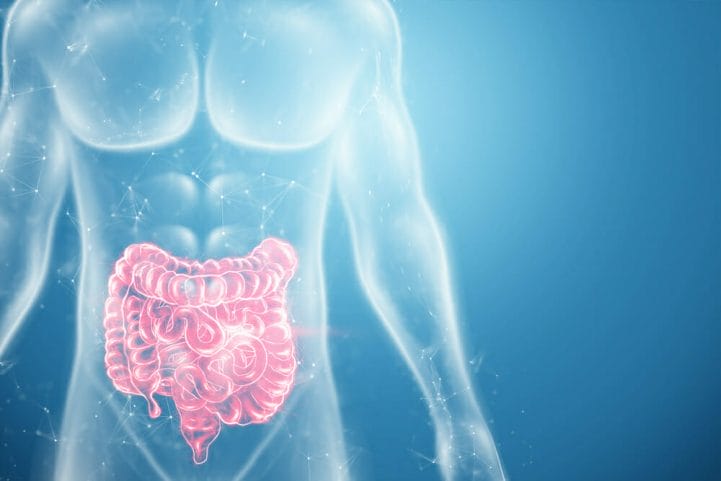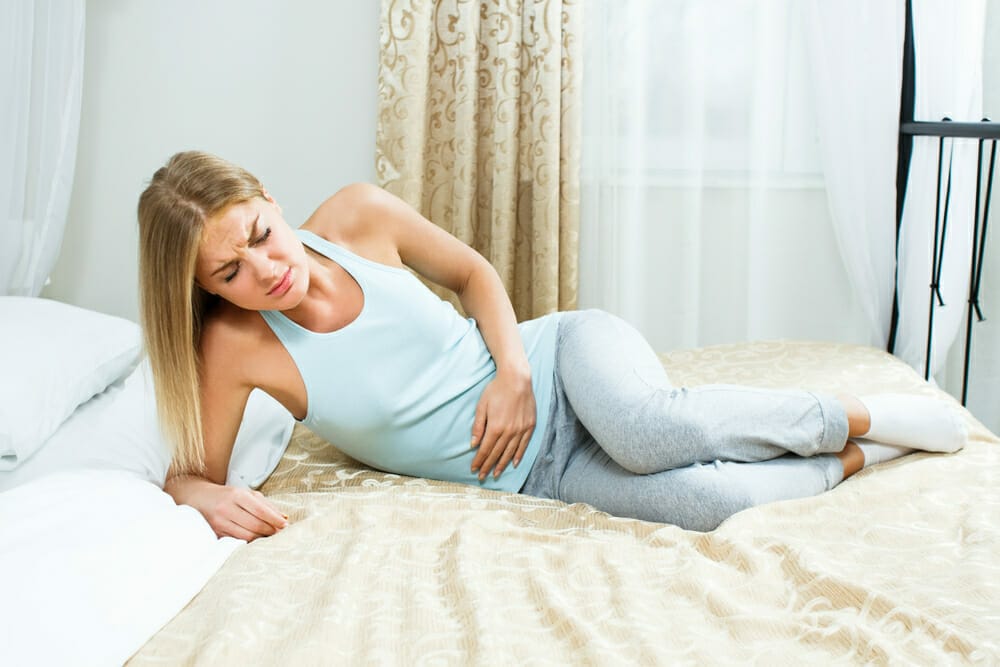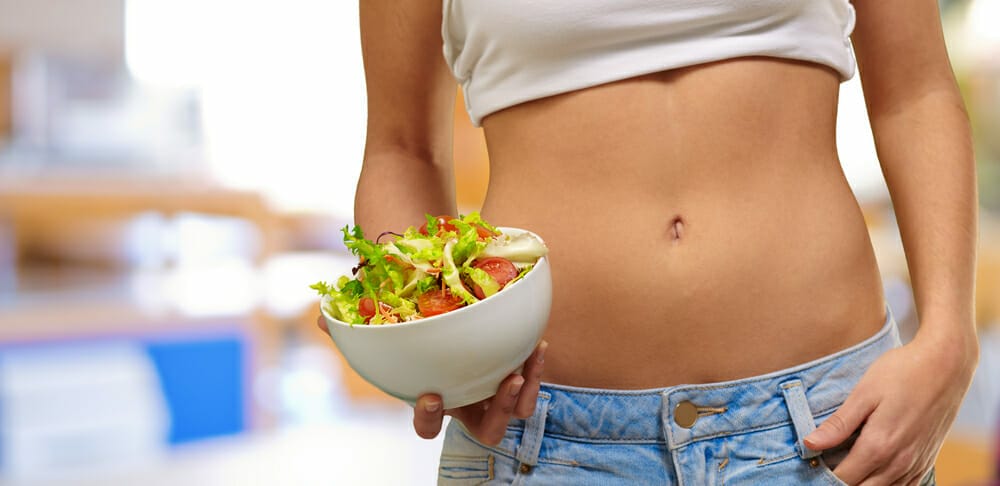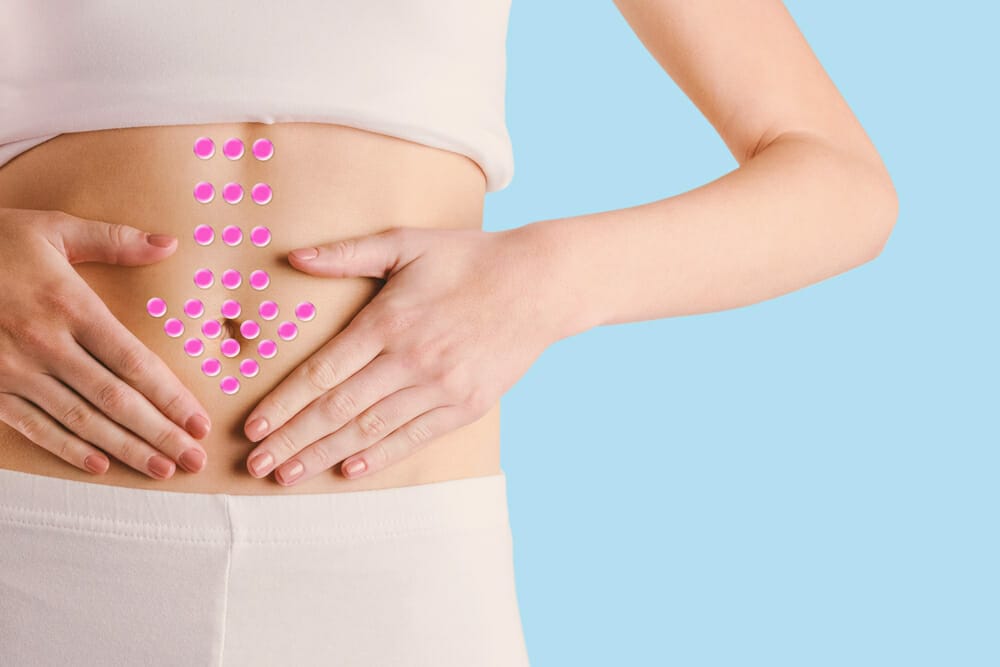Peristalsis is the natural movement of the large intestine to break down food content and move it toward the rectum for later excretion. Sluggish intestinal peristalsis, or so-called “lazy bowel syndrome,” is the cause of food residue retention in the intestine, resulting in constipation and severe abdominal discomfort and general malaise. Fortunately, there are simple ways to improve intestinal motility, and thus restore the natural cycle of bowel movements and get rid of persistent bowel problems.
Table of contents
Disorders of intestinal peristalsis – a common abnormality of the digestive system

Natural muscle and nerve reflexes within the gastrointestinal tract, or peristaltic movements, are essential for the proper digestion of food. Noteworthy, peristaltic movements take place not only in the intestines, but also in other parts of the digestive system. The peristaltic wave starts as early as in the esophagus, sweeps through the stomach, small intestine, large intestine, and has its finale in the rectum. Peristaltic activity involves rhythmic contractions and contractions of muscles throughout the gastrointestinal tract. Control over these reflexes is exercised by the autonomic system (which is part of the nervous system).
The main role of peristaltic movements is to mix and grind food and transport it to subsequent sections of the digestive tract, as well as to stimulate the absorption of nutrients, water and electrolytes. Peristalsis of the large intestine also aims to form fecal masses and carry them away for excretion into the rectum. While peristalsis of the esophagus or stomach is rarely abnormal, disorders of intestinal peristalsis, and mainly of the large intestine, are very common. They affect people of very different ages and have varying degrees of severity.
Disorders of intestinal peristalsis can take 4 forms. These are:
- Excessive intestinal peristalsis – is characterized by increased contractions of the muscles of the large intestine and loose stools. It is not uncommon for it to manifest as acute lower abdominal pain and diarrhea. Loud overflowing, bubbling, burbling in the abdominal cavity (known as noisy intestinal peristalsis) is also a common symptom. It can lead to impaired absorption of valuable compounds from food, which promotes nutrient deficiencies. Increased intestinal peristalsis can be caused by psychosomatic factors (e.g., severe stress), dietary style (e.g., excess fermented foods). It is also observed in some ailments, including irritable bowel syndrome.
- Slowed intestinal peristalsis – refers to a condition in which the contractions of the intestinal muscles are too little and too infrequent, resulting in too slow movement of fecal masses toward the rectum, constipation, excessive gas production and constipation.
- Lack of intestinal peristalsis – a rare ailment manifested by the disappearance of peristaltic movements (and thus intestinal obstruction) and closure of the lumen of the gastrointestinal tract. It can occur as a result of some mechanical obstruction in the gastrointestinal tract. It can also be the result of severe inflammation in the abdominal cavity or paralysis of intestinal motility. It is a life-threatening condition.
- Retrograde intestinal peristalsis – usually occurs as a result of intoxication and manifests itself as backflow of food contents into the esophagus, nausea and vomiting.
Slowing of intestinal peristalsis, or lazy bowel syndrome – the most common causes

The causes of intestinal peristalsis disorders are mostly related to lifestyle. In the case of sluggish peristalsis, it’s mainly about improper eating habits and too little physical activity on a daily basis. Psychological factors are also of great importance. In much rarer cases, decreased intestinal motility is determined by a medical condition and has a pathological basis.
Causes of slowed intestinal peristalsis:
- too many simple carbohydrates and fats in the diet,
- too little dietary fiber in the diet,
- too little fluid intake, mainly water,
- predominance of highly processed products in the menu over natural, healthy products,
- an improper eating style (e.g., not eating breakfast, eating meals at irregular times, too rich and late dinners),
- too little exercise,
- stress,
- constant irritability, neurotic disorders,
- living in a constant rush, lack of time for regular, quiet, longer visits to the toilet,
- habit of withholding stool,
- abnormal composition of intestinal microflora (too few probiotic bacteria in the intestines),
- Taking certain medications (e.g. antibiotics, painkillers),
- certain ailments and diseases (e.g., intestinal diverticulosis, diabetes, hypothyroidism, hemorrhoids),
- neurological disorders (there is a disruption of control over intestinal peristalsis as a consequence of destruction or damage to the central nervous system),
- hormonal disorders,
- abuse of laxatives.
Slowing of intestinal peristalsis – symptoms.
Weakened and slow peristaltic movements of the large intestine negatively affect one’s mood. The most common symptoms are:
- constipation,
- irregular, often painful bowel movements,
- hard stools, passed with effort,
- bloated abdomen,
- excessive abdominal tension, a feeling of distension in the abdomen,
- excessive gas,
- feeling of fullness in the abdomen,
- abdominal pain,
- nausea,
- belching,
- appetite disorders,
- heaviness of the whole body, lack of energy,
- irritability,
- apathy,
- constant fatigue,
- headaches and dizziness.
How to improve intestinal peristalsis?

Lazy intestinal peristalsis can be an extremely tiresome affliction, negatively affecting our quality of life and interfering with daily activities. The feeling of constant heaviness and discomfort in the abdomen leads to a state of apathy and discouragement to do any activities, and can also effectively disrupt the rhythm of the day.
To make matters worse, not defecating for a long time results in the accumulation of toxins in the body, which in turn translates into a number of symptoms, such as: nervousness, concentration problems, abdominal pain, skin problems, bad breath, constant fatigue.
How to improve intestinal peristalsis and get back to feeling good? It is certainly not worth focusing on using laxatives. Let’s reach for them only occasionally, in case of very troublesome constipation, certainly not every day or almost every day. The body quickly becomes accustomed to them, and when we stop taking them, they treat us to even more irritable bowels and even more severe constipation.
In stimulating intestinal function and eliminating persistent constipation, the most important thing is to change eating habits, make lifestyle modificationsof life, regulating the daily cycle, and eliminating psychological factors that can affect constipation (mainly tension and stress).
By modifying risk factors and introducing new habits that affect efficient and fast peristalsis, we will significantly improve bowel function. We can also reach for dietary supplements containing dietary fiber, probiotics or other proven ingredients that regulate intestinal motility.
Check out an effective way to stimulate intestinal peristalsis – rich vital fiber Fibre Select .
Wanting to improve peristalsis, it is also worth watching out for preparations that can slow down intestinal function, such as those containing iron. If our intestinal disorders have a pathological basis, it is worth starting by treating the disease responsible for slowing or speeding up peristaltic movements.
Here are effective tips to help us improve intestinal peristalsis, get rid of persistent constipation and regulate the rhythm of bowel movements:
- Introduce a healthy, high-fiber diet, dominated by high-fiber foods. They stimulate the intestines to work and improve the process of sweeping food debris, deposits and toxins from the body. Vegetables, fruits, legumes, cereals and bran, nuts, wholemeal, graham and whole-grain breads, brown rice, coarse groats, whole-grain pasta, grains and seeds, dried fruits contain a lot of fiber.
- Make sure your body is properly hydrated. Drink about 1.5-2 liters of water a day.
- Discard from your menu foods that interfere with the digestive system and are detrimental to intestinal health. These are mainly: sweets, fried, fatty and floury products, fast food, ready meals, low-quality cured meats, highly processed products, colored drinks.
- Every day, reach for products rich in valuable probiotic bacteria, thanks to which you will normalize the state of intestinal microflora, and thus reduce constipation, bloating and bowel problems. These include such products as fermented dairy products (buttermilk, kefir, yogurt, curdled milk, cottage cheese), pickled vegetables (e.g. cucumbers, beets, cabbage), tofu, tempeh, sourdough bread, sourdough bread, miso paste, soy milk, kombucha.
- To mobilize the intestines to work every morning, before eating breakfast, reach for a glass of water with lemon juice and a teaspoon of ground flaxseed. Another tried-and-true method is a glass of water in which a few dried prunes have been soaked overnight (prunes, of course, are also consumed).
- Reach for flaxseed oil often (1-2 tablespoons a day), adding it to yogurts, cottage cheese, salads, salads, smoothies. You can also drink water with 1 tablespoon of flaxseed oil in the morning on an empty stomach.
- Remember to always eat without rushing, by biting off small parts and chewing thoroughly. When we eat quickly and swallow too large of a bite, food is not digested completely, ferments and lingers in the digestive tract, promoting bloating, gas and constipation.
- Eat more often and less, such as 4-5 small meals instead of 3 hearty ones.
- Try to regulate your daily rhythm. Reserve some time each day (at a similar time) for a quiet visit to the toilet. Also, avoid stress, overwork, and living in a constant rush.
- Increase your level of physical activity on a daily basis. Long walks, exercise at home, swimming pool, gym, running… There are plenty of possibilities, in fact, any form of exercise your intestines will like.
Meet an advanced probiotic formula that will improve bowel function and help slim your figure: Probiosin Plus
Sources:
- https://www.healthline.com/health/constipation
- https://www.webmd.com/ibs/ss/slideshow-lifestyle-constipation-relief
- https://www.webmd.com/digestive-disorders/constipation-remedies
- https://www.webmd.com/digestive-disorders/habits-cause-constipation
- https://www.webmd.com/digestive-disorders/chronic-constipation-ease-stress

